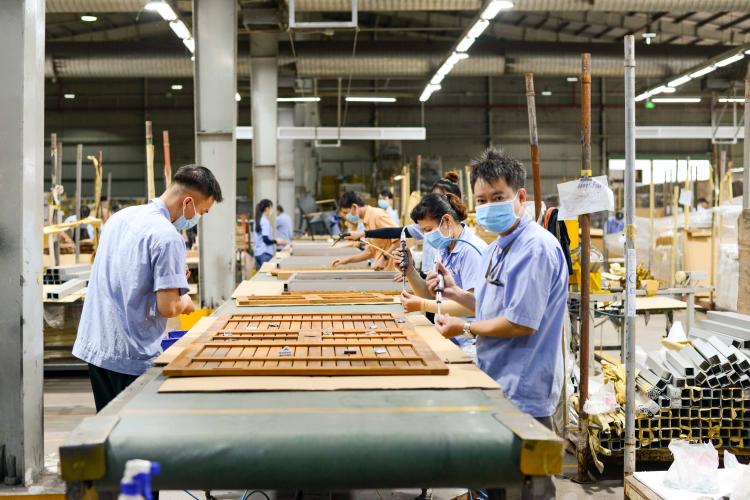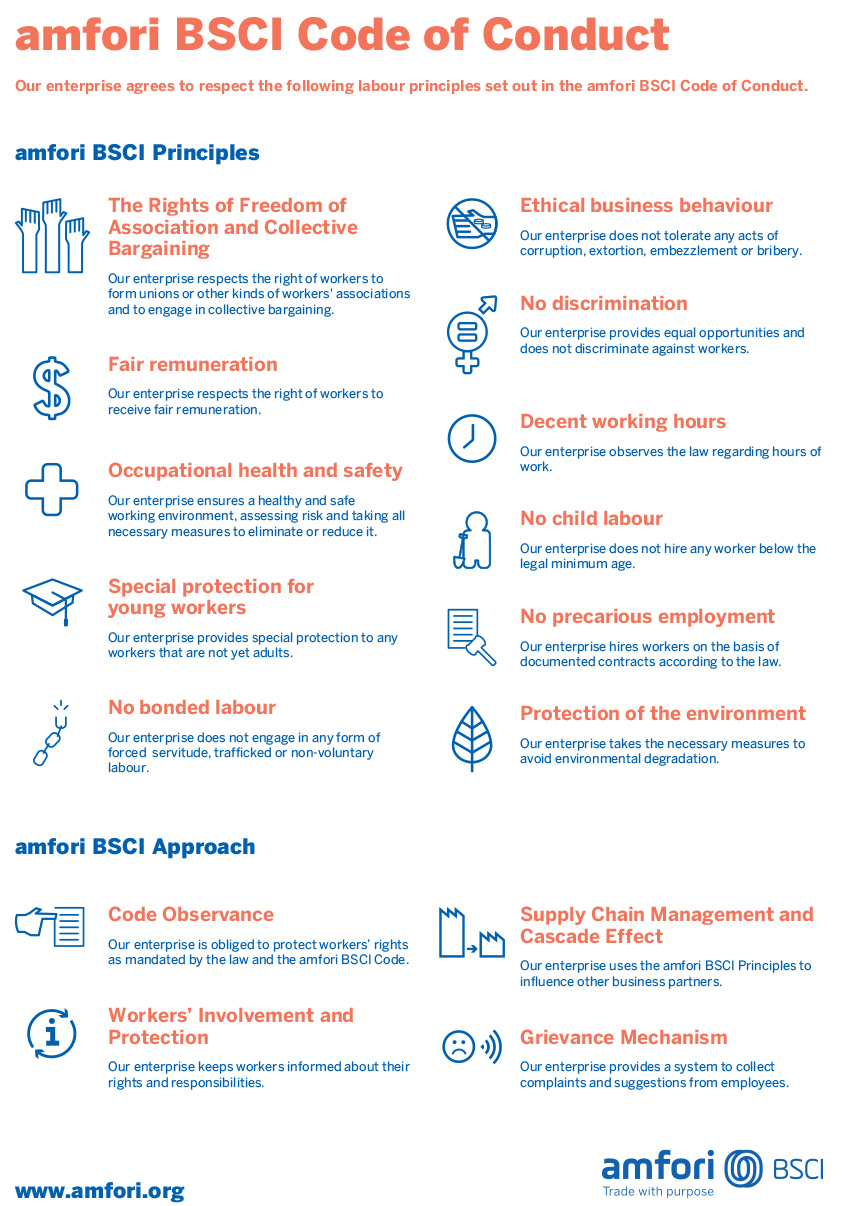
Socially responsible production
JYSK’s products are produced in many different places in the world – also in so-called risk-countries. This refers to countries where it is found that there is a larger risk of breach on compliance with the fundamental rights at work as they are described in the International Labour Organization’s (ILO) Declaration on Fundamental Principles and Rights at Work.
As a part of our commitment to respect the fundamental rights of workers in our supply chain, we became members of amfori Business Social Compliance Initiative (amfori BSCI) in 2006 as one of the first companies in Denmark. Amfori BSCI is an international organisation and supply chain management system with focus on risk countries.

As a member of amfori BSCI, JYSK has joined a common Code of Conduct – in other words a common set of rules with specific demands to the conditions at the factories where JYSK’s products are made. The amfori BSCI Code of Conduct refers to international conventions such as the Universal Declaration of Human Rights, UN Guiding Principles for Business and Human Rights, OECD Guidelines, and the International Labour Organization's (ILO) Declaration on Fundamental Principles and Rights at Work.
Amfori BSCI Code of Conduct consists of 11 principles for an ethical and socially responsible way of doing business. Among other issues, child labour, forced labour, discrimination and corruption is prohibited and demands are also made related to work safety, decent working hours and that the employees on the factories have the right to be members of a union and to engage in collective bargaining.
All the producers, which make products for JYSK, must accept and comply with our Supplier Code of Conduct in which amfori BSCI’s 11 principles are included.
Audit set up
Before JYSK considers starting a collaboration with a new producer, an assessment of the working conditions at the production site is strictly mandatory.
Every production site located in a risk country, must have a valid third party audit report. The audit must take place before JYSK will initiate a collaboration with the site. Hereafter, audits are conducted on a regular basis. The frequency is determined by the findings at the previous audit.
Amfori BSCI is responsible for conducting the audits. The audits are performed by an impartial third party.
To secure a truthful examination of the production site, JYSK has chosen to initiate only semi-announced audits, which means that the production site will not know on which date the audit will take place. The production site will be given a time interval of one month and must expect an audit any time within the interval.
To further secure truthful results, employees are randomly picked for qualitative interviews. The employees are interviewed in a separate location and several employees are interviewed. The purpose of this procedure is to secure that the employees feel safe to be open and honest about the conditions at the workplace, as they are completely anonymous.
If the audit reveals any deviations from the code of conduct, amfori BSCI, JYSK and other companies sourcing from the factory will be informed so that all partners can find a solution in cooperation with the factory.
It is important to JYSK that a new audit is set up shortly afterwards in order to ensure remediation.
If the breach is serious, a so-called zero tolerance protocol comes into effect, and a solution must be found immediately. A remediation group will be formed to make a plan for the actions needed to become compliant and to decide appropriate remediation for affected individuals. If a zero tolerance case arises, the Compliance & Quality Director of JYSK will be involved immediately, and the Executive Vice President Purchasing will be informed.
The day-to-day responsibility of ensuring that our suppliers and producers comply with our Code of Conduct, including human rights of workers, is based in the JYSK Compliance & Quality department, where a BSCI-responsible is appointed.
Dialogue and involvement is the way forward
If there are any deviations from our Supplier Code of Conduct on a factory, JYSK prefers to continue working with the producer to secure that improvements are made. If we simply end the cooperation and turn our backs on the problems, the change will never happen. Ongoing improvements are at the core of amfori BSCI, and in JYSK, we believe that dialogue and involvement is the way forward when it comes to improving social conditions.
It is however crucial for the future cooperation that we experience improvements at the factory. If this is not the case, the cooperation must end.
Grievance Mechanism
JYSK’s membership of amfori BSCI enables a grievance mechanism for our business partners. The amfori BSCI external grievance mechanism provides a platform for individuals or organisations to submit grievances, about perceived or real instances of wrong or unfair treatment.
Ethical Trade Denmark
JYSK is a member of Etisk Handel Danmark (Ethical Trade Denmark), which is a multi-stakeholder Initiative, which brings together the business community, the labour movement and social organisations. The purpose of the initiative is to encourage actors to work together for ethical trade and find constructive solutions to the challenges faced by Danish companies with their suppliers in the developing world and the new emerging economies.